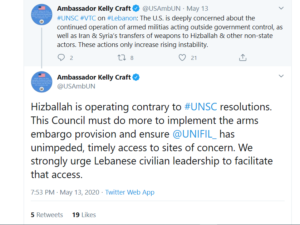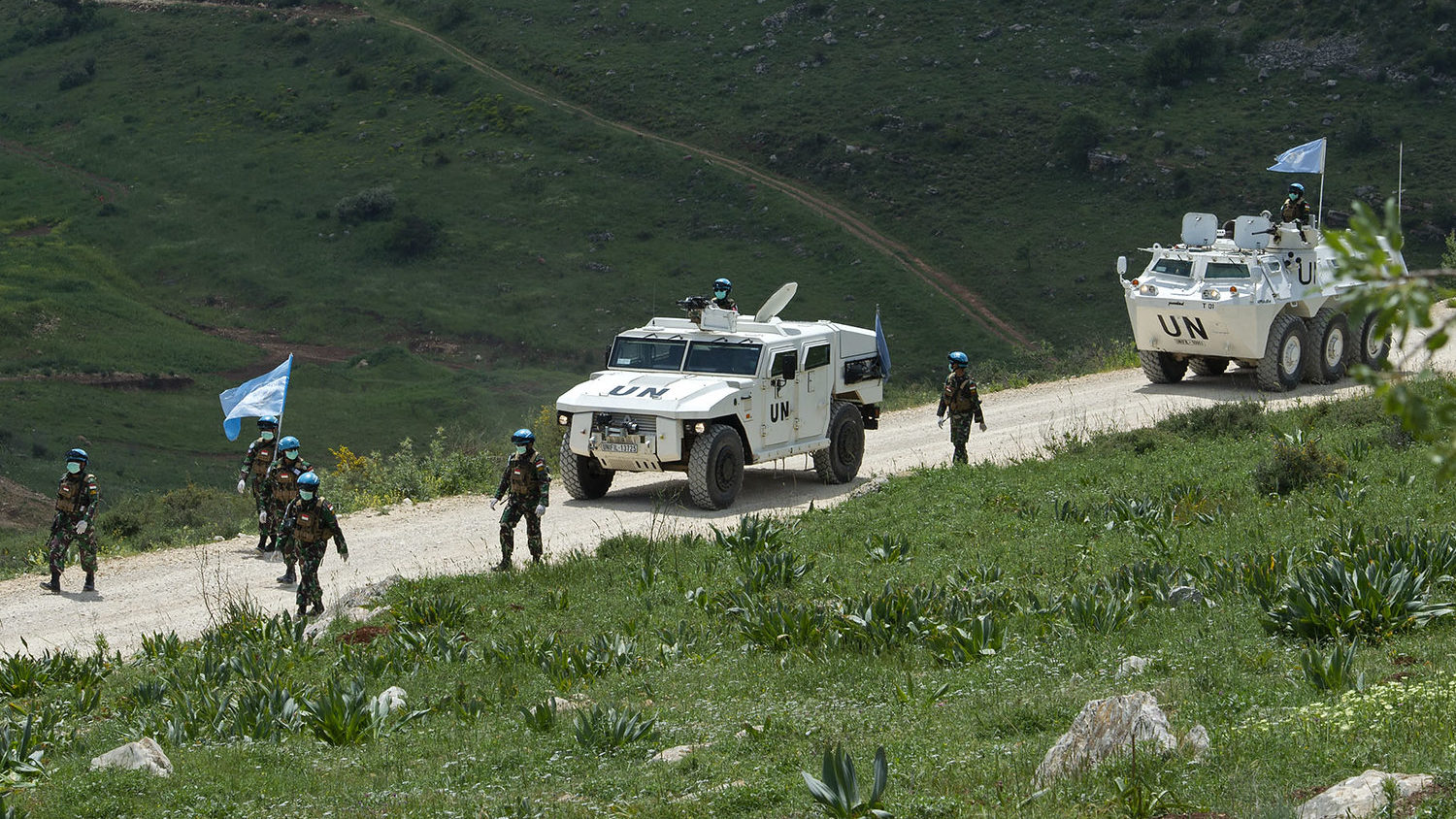Hizbullah Chief Rejects US Demand to Empower UN Peacekeepers
Force patrolling Lebanon’s border with Israel seen as ineffective in face of heavily armed Shi’ite militia
Hizbullah leader Hassan Nasrallah has expressed his rejection of a US diplomatic demand for the United Nations to bolster its UNIFIL peacekeeping force, which monitors southern Lebanon and the area near the Israeli border.
The head of the Lebanese Shi’ite movement spoke as the UN Security Council gears up for a vote this summer on whether to renew the mandate of UNIFIL, known more formally as the United Nations Interim Force in Lebanon.
“The Americans, as the result of Israeli demands, are raising the issue of changing the nature of UNIFIL’s mission,” Nasrallah said in a radio interview this week to mark 20 years since Israel withdrew from Lebanon.
“Lebanon has refused to change UNIFIL’s mission, but Israel wants… it to have the right to raid and search private properties, and the Americans are pressuring Lebanon on this matter,” he said.
US Ambassador to the UN Kelly Craft took to Twitter earlier this month, saying UNIFIL was being “prevented from fulfilling its mandate” and Hezbollah had “been able to arm itself and expand operations, putting the Lebanese people at risk.”

Craft said the Security Council “must either pursue serious change to empower UNIFIL or realign its staffing and resources with tasks it can actually accomplish.”
Husam Arrar, a Lebanese journalist close to Hizbullah, told The Media Line that Washington was siding with Israel in targeting the Shi’ite group.
“No one should be surprised by the US position,” he said. “The surprise would be if other members of the UNSC adopted the same position as the Americans.”
Arrar added that there was “no merit” to Washington’s demand, and thus no reason to accede to it.
“Hizbullah is in complete compliance with Resolution 1701 while Israel continues to violate Lebanon’s sovereignty. The only one that can stop this aggression is Hizbullah,” he said.
UN Security Council Resolution 1701 was meant to resolve the 2006 Israel-Hizbullah War, known in Lebanon as the July War and in Israel as the Second Lebanon War. It called for the disarmament of Hizbullah, the withdrawal of the IDF from Lebanon and the deployment of the Lebanese Armed Forces and an enlarged UNIFIL in southern Lebanon.
Nasrallah spoke after reports last Monday of a dispute between Finnish peacekeepers and locals in a village in southern Lebanon.
“The time of deeming Lebanon to be weak is over, and Israel cannot impose conditions on Lebanon, even behind an American mask,” he told the radio station.
When the Security Council last year renewed UNIFIL’s mandate for 12 months − until August 31, 2020 − it added a requirement for a comprehensive evaluation of UNIFIL and its capabilities by June 1.
Earlier this month, Craft said that some 10,000 peacekeepers were being “prevented from fulfilling [their] mandate” and that Hizbullah had “been able to arm itself and expand operations, putting the Lebanese people at risk.”
Orna Mizrahi, a senior research fellow at the Institute for National Security Studies in Tel Aviv, told The Media Line there was debate within the newly formed Israeli government on the need to increase the UN force’s personnel.
“I personally think it’s important to enlarge the force even if it is not doing as good a job as it could, refraining from entering private properties and looking at the places where the rockets are hidden in private homes. It’s better to have them there than not at all,” she said.
UNIFIL was created in 1978, but had its responsibilities expanded following the 2006 war. It is tasked with guaranteeing the cease-fire that ended that year’s fighting, something enshrined in Resolution 1701.
Instead of disarming, experts say the Iran-backed Hizbullah has increased its military power as well as its missile caches in southern Lebanon, acquiring thousands of sophisticated rockets that can reach deep into Israel.
“It’s not just the question of increasing the number [of peacekeepers], but also changing the mandate,” Mizrahi said. “They [UNIFIL] have no authority to act against what Hizbullah is trying to do and what it has done since 2006.”
Hizbullah moves freely in that part of the country, she continued.
“South Lebanon is full of missiles that are targeting Israel, and Hizbullah is free to do what it wants in many of its strongholds along the border,” she said.
Nasrallah’s rejection of the US demand, Mizrahi said, proved her assessment that amending UNIFIL’s mandate would rein in the group’s presence near the frontier.
“If we enlarge the force and improve the mandate, we will have better results against Hizbullah,” she stated.
Last week, the Russian ambassador to Lebanon told a local TV channel that Moscow did not view Hizbullah as a terrorist organization, but rather as one fighting against terrorism.
These comments, Mizrahi said, might create tension between Russia and the US come voting time in the Security Council.
“I think,” she said, “that the Russians may challenge US attempts at changing the mandate this summer.”


